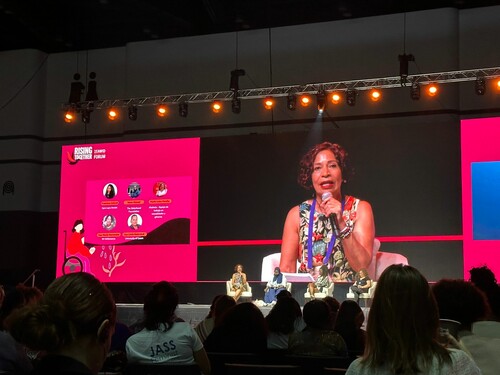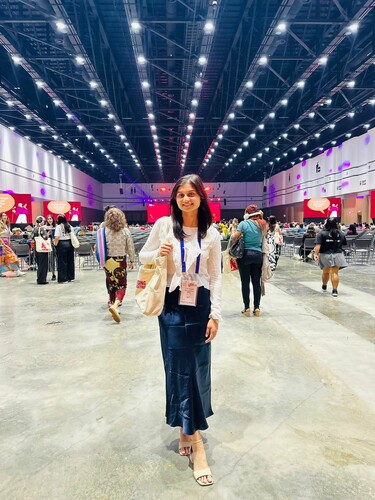Reflections on the 15th AWID International Forum
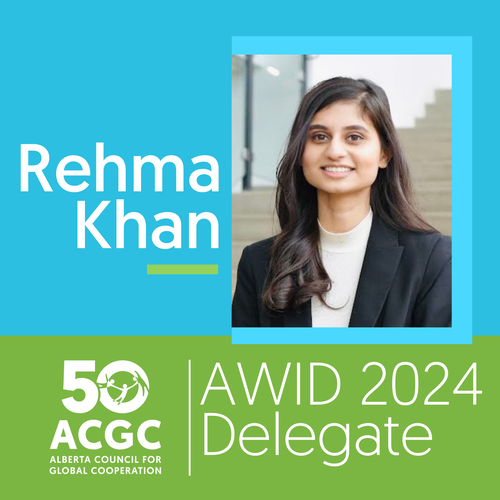
The AWID International Forum took place in Bangkok, Thailand from December 2-5, 2024. Both a global community event and a space of radical personal transformation, the Forum brings together feminist, women’s rights, gender justice, 2SLBTQIA+ rights, and allied movements, in all our diversity and humanity, to connect, heal, and thrive.
We're thrilled to have sent ACGC delegate Rehma Khan to the 15th AWID International Forum! Rehma is a South Asian researcher and advocate focused on the intersection of cultural identity, sexual health, and education, and aims to contribute the lived experiences of immigrants living in rural communities, particularly South Asian immigrant families in Canada, to the global conversation on sexual and reproductive health rights (SRHR). Rehma is also a 2023 Top 30 Under 30 recipient, and a current (2025) ICN Youth Delegate.
See below for daily, and final-day, reflections from Rehma during her experience at the Forum.
---
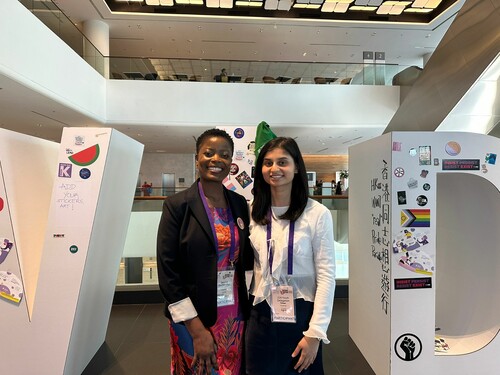
Image: ACGC Executive Director Sandra Muchekeza (left) and Rehma Khan (right) on day one of the Forum
Day 1 Reflections
On day one of the AWID forum, we were introduced to AWID and met leaders and activists from around the world doing work on women's rights. During the plenary, I had the chance to learn about collective resistance efforts taking place around the world and learned from researchers and activists. Following this, I had the chance to attend a session on media activism where we learned how one can use media activism as a tool to inhabit the internet. More specifically, I had the chance to learn about and reflect on what the algorithm bias is and how we can critically think about the algorithm and the content it pushes forward. The session also highlighted how digital ecosystems are biased. Next I had the chance to attend a panel session where women from around the world shared their experiences living with HIV and what gaps currently exist in HIV movements. This session highlighted the intersectionality between increasing rates of HIV in the community and issues such as intimate partner violence. We also heard about women living with HIV and their experiences with health services. I also had the chance to explore the exhibits and meet with activists from around the world to learn about the work they are doing.
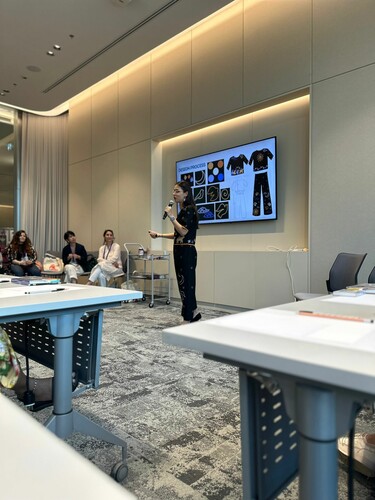
Day 2 Reflections
Today, we started off the day with a session on collective care where we heard from panelists on issues pertaining to collective care and what that looks like for different communities around the world. There was a central focus on healing and self care in sessions throughout the day. The first session I attended was one on speaking from our roots/ reflections of Black, Afrodescendant, Afrodiasporic and Indigenous women on healing practices. We heard from three different speakers on what healing means to them and how there is no one way of healing. It is important in this space not to subjugate people to ideas of what it means to heal. Following this, I explored some of the exhibits where I saw how community organizers are using art as a method of protest and then attended a session on art as a tool for social change. This was a very reflective and insightful session. The session on Art as a tool for social change highlighted how art can be used as a tool for mobilizing social movements. The reason I resonated with this session a lot more than I expected was because the speaker was also Pakistani and she shared her own heritage and experiences in using art as a form of community development and intersecting it with social enterprise to preserve the heritage of previous art informed methods in Pakistan. The picture of myself and Valeria is from the art session (we didn’t finish our posters).

Day 3 Reflections
On day 3, I attended a session led by the CAO Collective on harnessing art in community organizing. The discussion centred on how art can serve as a tool for empowerment and how it truly belongs to everyone. We explored the ways social justice-oriented art programming spaces are often excluded from the mainstream arts industry, and how CAO envisions participatory, multimedia storytelling as a method to drive narrative and societal change. Their approach to creating spaces where communities can name their experiences and develop languages for the world to see was particularly inspiring. I also had the opportunity to connect with IPPF South Asia, Centre for Sexuality and several youth organizations working globally to improve sexual and reproductive health and rights (SRHR). These conversations were energizing and highlighted innovative efforts to address systemic barriers and ensure equitable SRHR access for all.
Day 4 Reflections
We wrapped up AWID 2024 and said goodbye to the amazing program. In the morning, they announced a last minute session by Tarana Burke, founder of the me too movement where we heard about community organizing. The session was called “An introduction to what we can do together, that we can’t do separately”. We heard from her about her journey with starting and establishing the movement. One of the things she mentioned which resonated with me was the importance of starting with relationships and building infrastructure around them. Movements have to be organized, resourced, and well-intentioned in order to be successful. We have a lot of solutions but not enough resources.
Final Reflections
This forum reminded me that movements for social change are dynamic, intersectional, and deeply rooted in relationships. I am leaving AWID with a renewed sense of purpose, a greater awareness of global struggles and triumphs, and an appreciation for the creativity and resilience of activists worldwide. I am grateful for the opportunity to have been part of such an enriching space and look forward to applying the lessons I’ve learned to my own work and advocacy.




